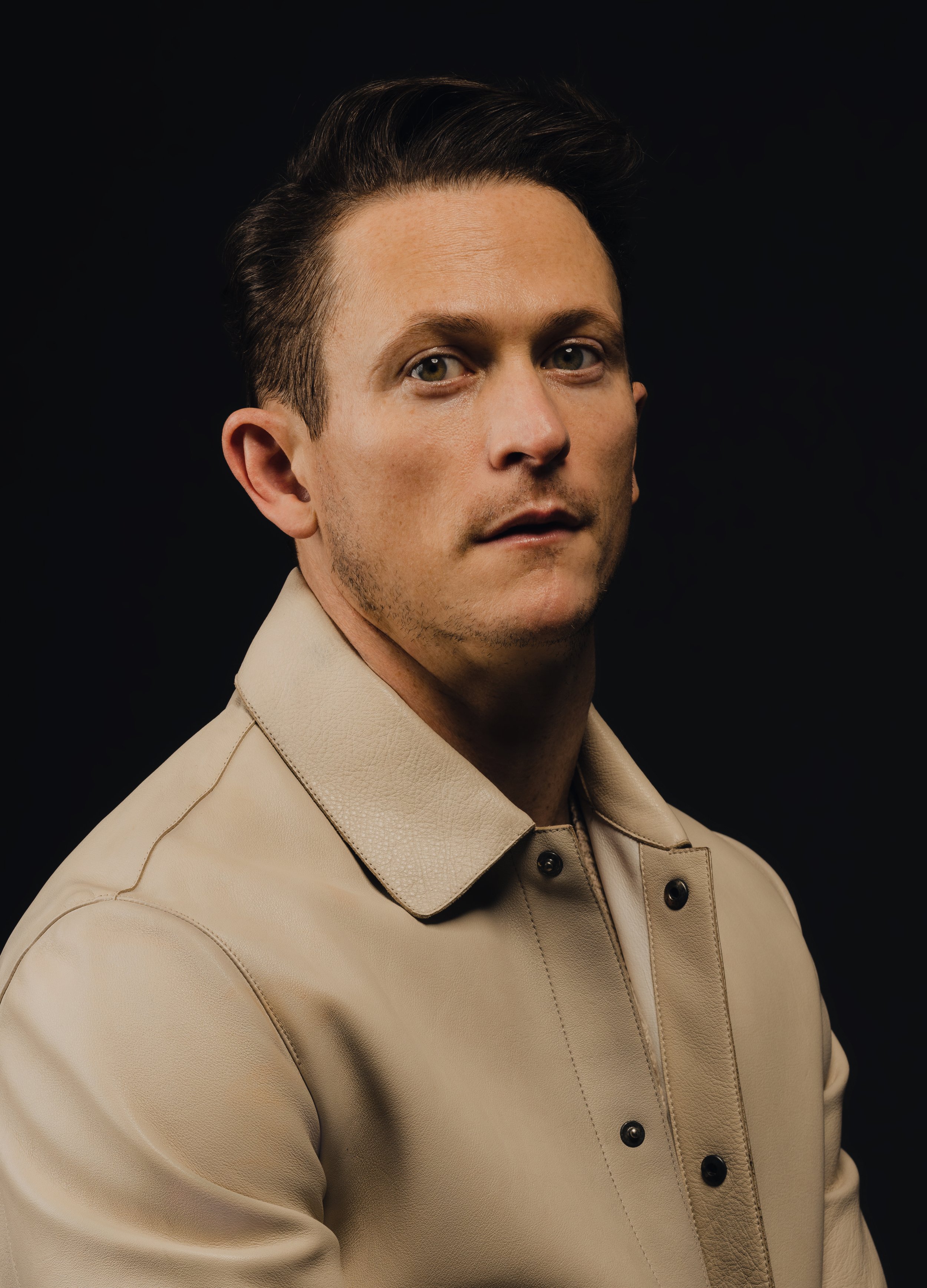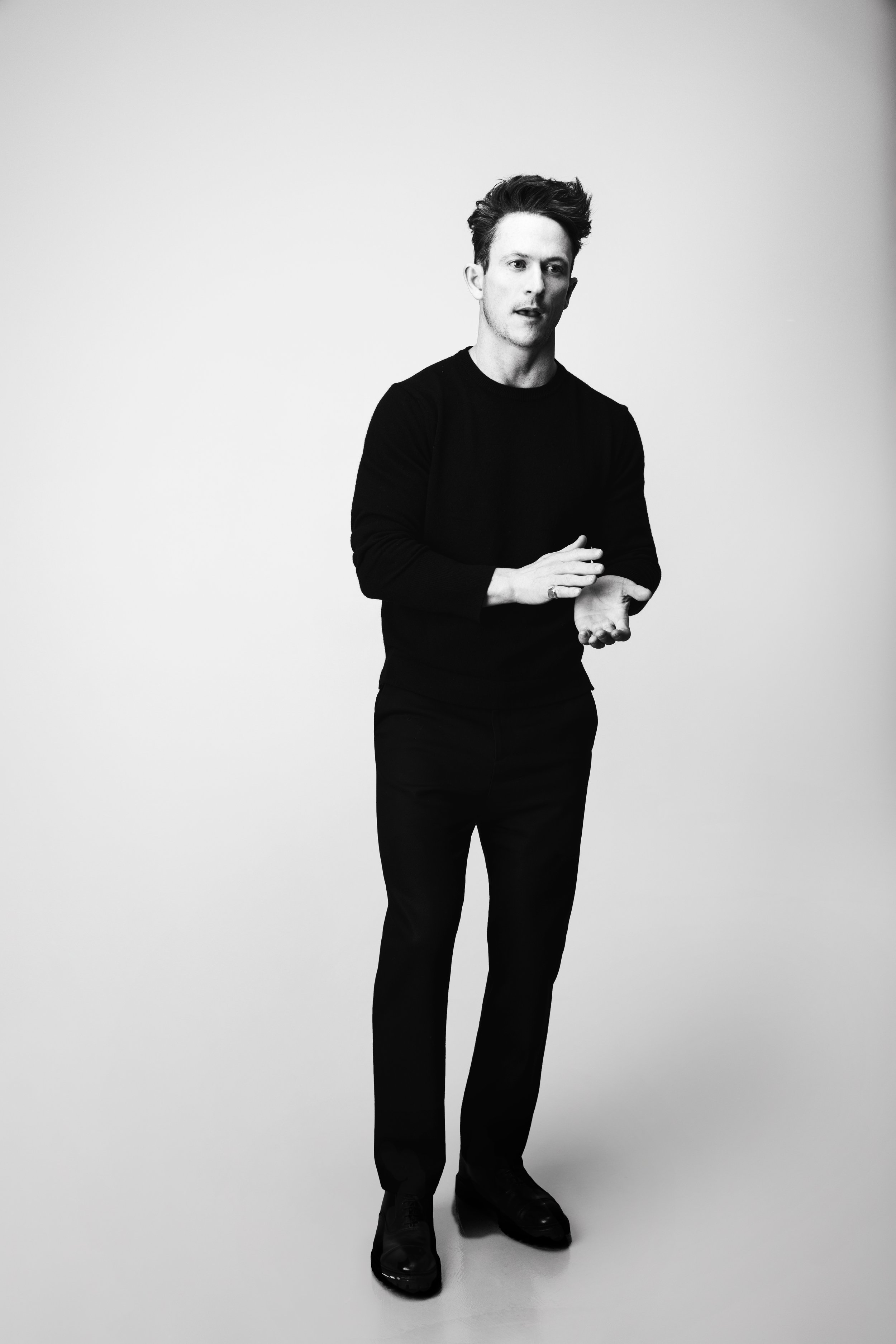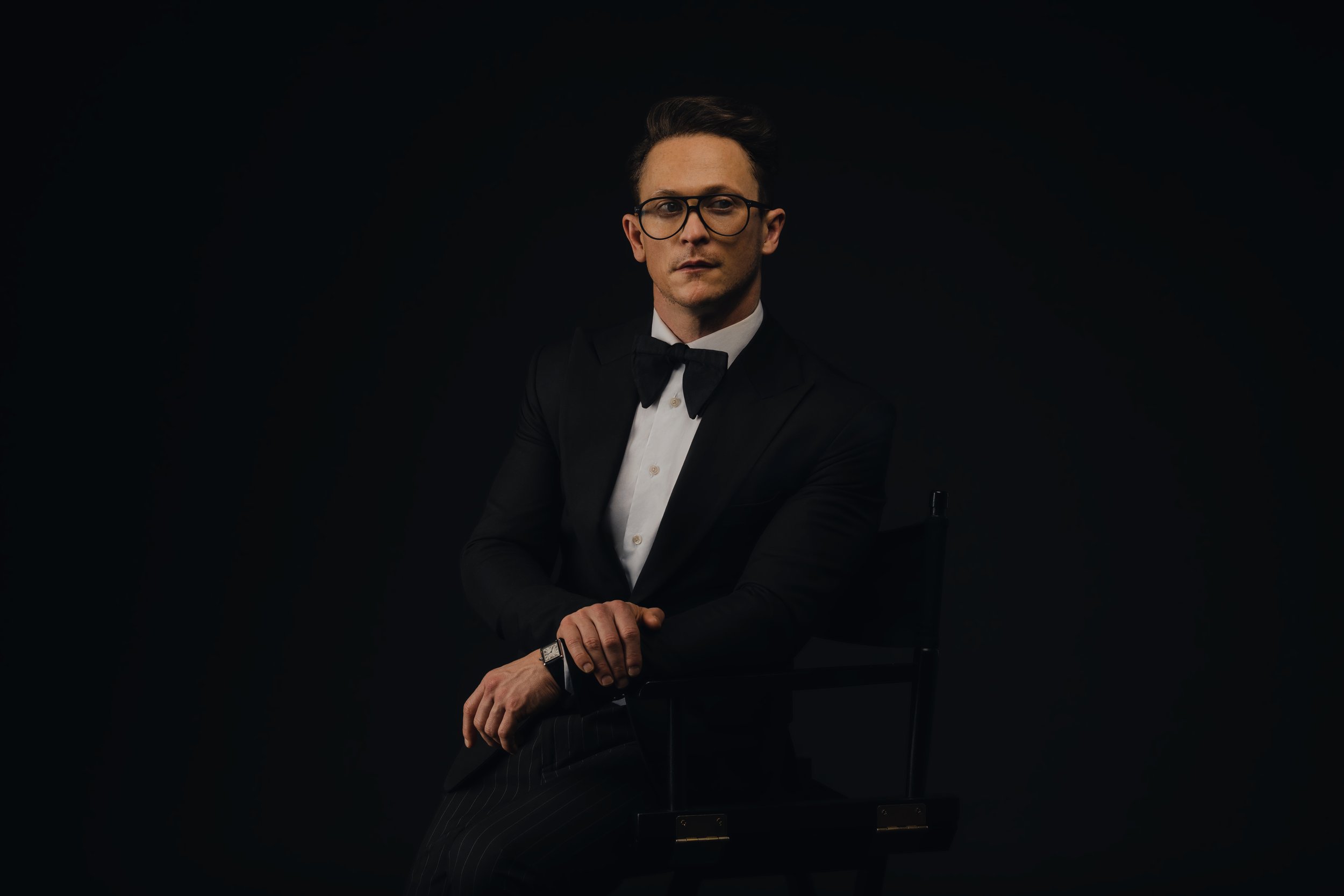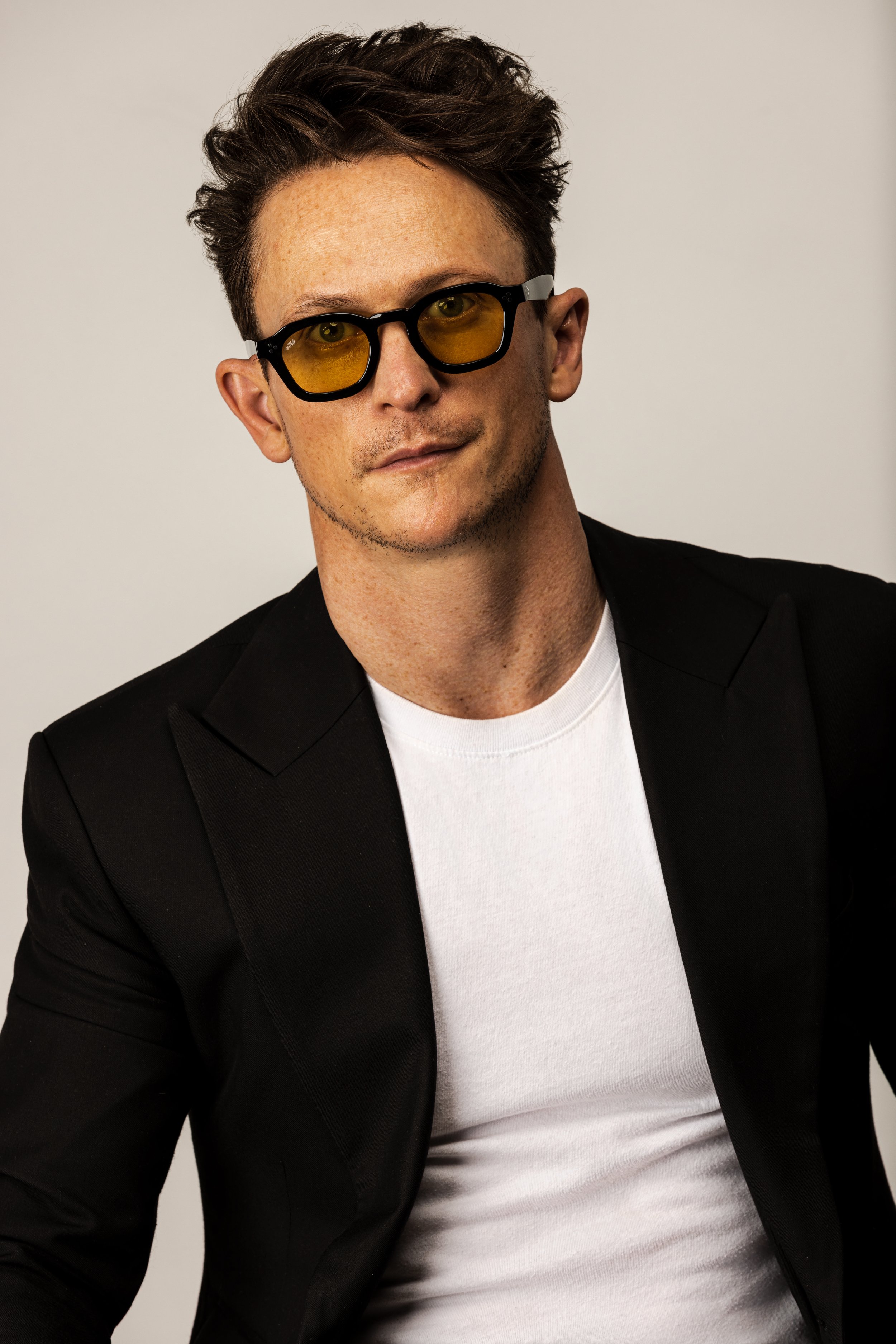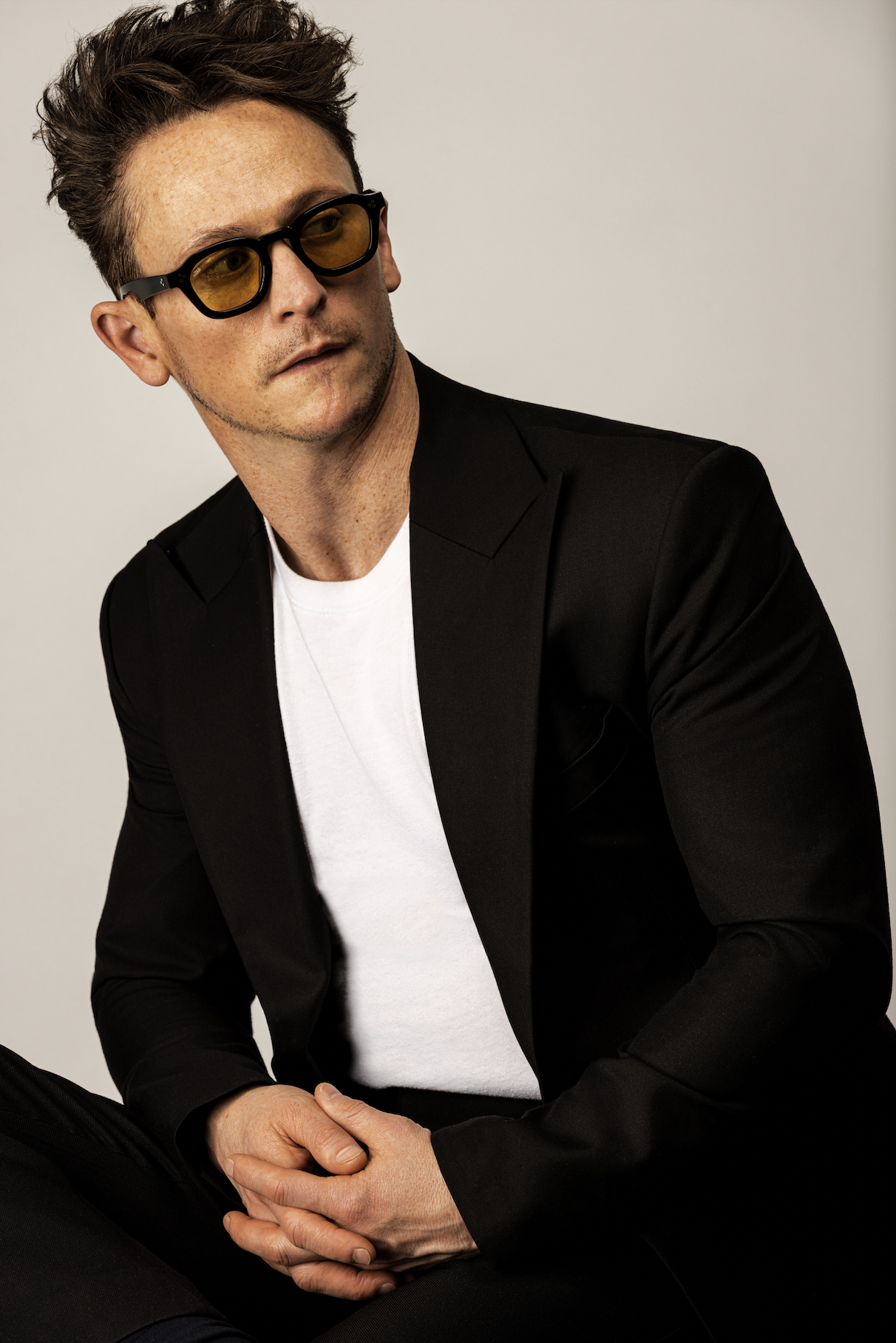Actor Jonathan Tucker Talks Career Diversity, Preparation, and Longevity in the TV and Film Industry
WITH JONATHAN TUCKER
Jonathan Tucker has been a prolific actor in the entertainment industry for nearly three decades.
Photography, Santiago Elliott
Words, Cruz Lorenz In Conversation with Jonathan Tucker
VIEW GALLERY
Actor Jonathan Tucker has made a name for himself in the world of TV and film with his diverse range of roles, from playing a mixed martial artist in "Kingdom" to a sinister character in "Westworld." In our recent interview, Tucker shared insights into his acting journey and his approach to storytelling.
Tucker, who began his career as a young ballet dancer, credits his experience with the Boston Ballet for his discipline and ability to take direction, skills that have served him well in his acting pursuits. He also talked about growing up in Boston and how his diverse upbringing has informed his acting work.
When asked about his preference between film and TV, Tucker highlighted the importance of character over medium. He believes both mediums offer ample opportunities to tell stories that resonate with audiences.
One of the unique aspects of Tucker's career is his ability to avoid being typecast into a particular genre or role. He hopes to continue taking on diverse characters that challenge him as an actor, even if it means going through painful or challenging periods.
You can’t explore characters until you’ve explored yourself, and a critical part of that inner journey is education.
While Tucker recognizes the power of social media in connecting with fans, he is cautious about sharing too much personal information that might limit his professional opportunities. He also emphasizes the importance of staying curious and exploring different avenues of personal growth, even during professional uncertainty.
Tucker's breakthrough role was in the film "The Deep End," which he says changed his career trajectory. However, he sees every project he works on as an opportunity to build upon his past experiences and grow as an actor.
For his latest role in "Palm Trees and Power Lines," Tucker relied on his physical exploration and training in Alexander Technique to inform his performance. He believes that every character's trauma tells their public persona and that bringing those inner complexities to life on screen is his job.
Finally, Tucker shared that he has several new projects in the works, including a fictional podcast called "The Mantawauk Caves" and a film called "God is a Bullet" with Jamie Foxx.
For Tucker, storytelling is a career and a way of life. He is committed to approaching every role with the same dedication and professionalism and hopes to continue bringing robust and diverse characters to audiences.
CL: Growing up, did you know acting was something you always wanted to do?
JT: I began dancing with the Boston Ballet as a young boy. That led to a national TV commercial shoot. I knew I was home when I walked onto that first sound stage. The teamwork, the camera, the process. All the skills I had honed in ballet — self-discipline, ability to take direction, rigorous preparation — became superpowers. I prayed every night that I would get hired again as an actor.
CL: Where were you born and raised, and how did or did it not inform your acting pursuit?
JT: I was nursed, cradled, and reared in the People’s Republic of Boston. The diversity of the city and the clarity of New England's character is my loadstar. I went to school in the suburbs and returned home to a working-class Irish enclave of Charlestown, straddling two worlds. I always felt like an observer.
CL: What were you studying at Colombia University before you decided to pursue acting full-time?
JT: I wanted to pursue East Asian Studies. Colombia was my first choice. I wanted to be in New York. I wanted the school’s famous Core Curriculum. You can’t explore characters until you’ve explored yourself, and a critical part of that inner journey is education.
CL: When interacting with fans, what movie or show is the most popular? Do you agree and why?
JT: I’ve jumped into many different fan bases in my television work, so it tends to change wherever I find myself. Fans of "Justified" and "Kingdom" are remarkably passionate, and that’s to be expected as both shows lived in viewers' homes for years. It’s a privilege to be a part of people’s lives in that respect. Folks live with your characters.
CL: Do you have a preference for Film or TV? Why?
JT: I love the time TV affords a character, but it’s always character over medium. At this juncture, there’s very little difference, technically. And there’s no less commitment to a role. The hope is that the work will resonate with people and that a platform facilitates that.
CL: Many great actors tend to be typecasted into a movie genre or role. You’re one of the few who have been able to diversify. When you look at your resume about 10 years from now, what do you want it to reflect?
JT: The same sense of diversity of character. I want to take the same significant risks to live an entire life. Unfortunately, resumes don’t show all the painful moments and challenging periods. Growth often comes at a cost, and a resume is often just a hit list. I hope my kids know that I learned from my crew members — that I understood everyone has a story to share. I arrived on time, prepared, and took this whole circus seriously.
CL: We hear a lot about how the industry has changed, especially regarding how actors get roles nowadays with social media. What’s your relationship like with the platform? Would you say it has helped your career?
JT: Social media provides an opportunity to communicate directly with people who have been affected by my work, which is something for which I’m grateful. I often wonder how much to share because I don’t want to be restricted professionally by what people think of my personal life, and themes emerge on social media just as they can in the kinds of roles the business thinks are right for you. I’m constantly trying to break out of those grooves.
CL: Is it essential for an actor to build a brand that extends past the film and tv industry?
JT: Absolutely not. It can sometimes be detrimental to the work of an actor.
Separating the industry from the work is essential to an actor.
CL: If I am correct, your first acting credit was in 1994 for Troublemakers. Since then, you’ve gone on to take on many projects. In moments when things did not always seem to look up, what kept you believing in the TV and Film industry?
JT: Separating the industry from the work is essential to an actor. You can always turn towards the fulfillment of telling a story. That can come in the form of an acting class or identifying ways to become a better man, a more holistic person. Staying curious is an actor's job, whether you're employed or not.
CL: Which project of yours would you consider your breakthrough? Why? Think of the best phone call you received.
JT: “Kingdom” allowed me to show how keen I was to explore a character fully, but “The Deep End” was the film that changed my career. Ultimately, all I wanted was to work with talented people. “Sleepers” provided that, earlier, for example, but after “The Deep End,” people started calling like I proved something versus having to prove myself. Of course, we have to prove ourselves every day, every moment, but that’s often a more significant idea around the willingness to fail. It felt like people I respected, respected me after “The Deep End.”
CL: Do you see any connection in how the breakthrough project prepared you for your latest Palm Trees and Power Lines role?
JT: Tom from "Palm Trees and Power Lines,” like any project, is the product of all the work I’ve ever done. We are all the product of everything we have accomplished, suffered, or learned. Shooting independent films without the fear of a studio often provides a sense of freedom for performances to take shape, a place to take significant risks. And director Jamie Dack underscored that spirit during production.
CL: What was the preparation like for the role of Tom?
JT: Tom needs to provide a sense of security for Lea, make her feel unique, and offer the possibility of a bigger life. It was a process of dressing Wolf into Grandmother's clothes. I will never stop sharing the magic of the Alexander Technique and how our physical exploration seeps into the interior. Or how every character’s trauma instructs their public persona. Imagine all the answers I’d have to know to play you.
CL: What’s the key to maintaining longevity within the TV and Film Industry?
JT: Sweat equity and recognizing that slow is smooth and smooth is fast.
CL: Any new projects to be on the lookout for?
JT: A fictional podcast released by BlumHouse and iHeartRadio called “The Mantawauk Caves” and Nick Cassavetes’ “God is a Bullet” film in June.
we have to prove ourselves every day, every moment, but that’s often a more significant idea around the willingness to fail.

